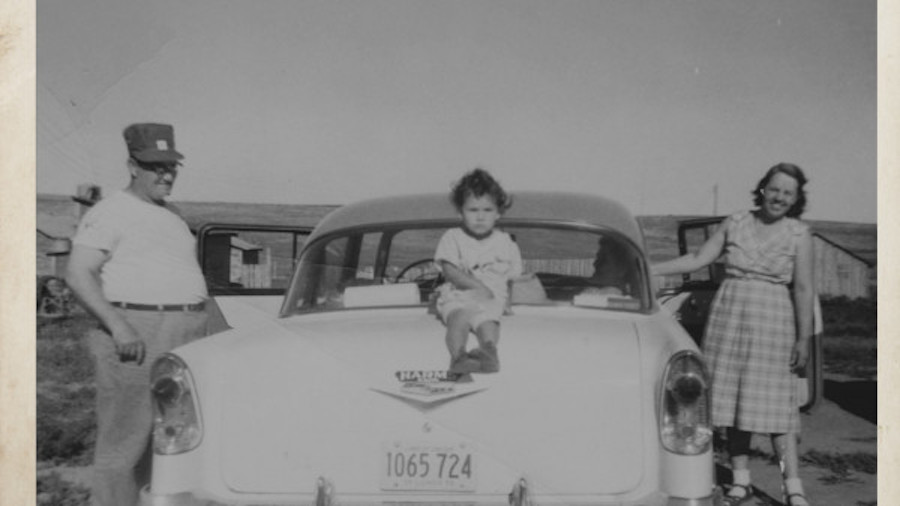
- Details
- By Kelsey Turner
Sandy White Hawk was just 18 months old when she was removed from her Sicangu Lakota family on the Rosebud Indian Reservation in South Dakota. A white couple adopted her that year, in 1955. White Hawk spent her childhood separated from her family, her culture and her heritage — a trauma that still impacts her to this day.
Now, White Hawk is fighting to defend the Indian Child Welfare Act (ICWA), a law meant to protect Native American children from being removed from their tribes and sent into adoption or foster care systems. The law is being reviewed by the U.S. Supreme Court this fall to determine whether it is constitutional.
ICWA was passed in 1978 in response to the hundreds of thousands of Native children who were separated from their families by state child welfare and private adoption agencies. More than 80 percent of these Native children were placed in homes outside their families and tribal communities, even when fit and willing relatives were available, according to the National Indian Child Welfare Association.
In a conversation with podcaster Robin Chenoweth on the Ohio State University Inspire podcast, White Hawk tells her story and talks about the ongoing importance of ICWA. She also discusses her first-of-its-kind study on the effects of adoption and foster care on Native American children and families, completed in collaboration with Ohio State Assistant Professor Ashley Landers.
The study found 64 percent of American Indian respondents reported experiencing physical abuse in foster and adoptive homes, compared to 38 percent of white respondents. Nearly half of American Indian participants reported spiritual abuse and a third percent reported sexual abuse. This victimization in childhood caused many Native adoptees to develop mental health struggles like depression and suicidal ideations later in life.
The research by White Hawk and Landers will be included in an amicus brief for a Supreme Court case that is putting ICWA at risk, according to the podcast. Texas, Louisiana and Indiana, along with several individual plaintiffs, claim ICWA is unconstitutional because it is based on race, violating equal protection laws.
White Hawk, also the founder and executive director of the First Nations Repatriation Institute, disagrees.
“ICWA is not a race-based law,” she said in the podcast. “It was founded on the fact that we belong to sovereign nations.” Being a sovereign nation gives tribes the right to protect their culture and heritage, she argues.
To hear more about White Hawk’s story, ICWA and the Supreme Court case seeking to overturn it, listen to Ohio State University’s latest podcast episode, “Stolen from her tribe, now she’s fighting back” on Apple Podcasts or Spotify. The episode transcript can be found here.
More Stories Like This
NCAI Passes Two Emergency Resolutions on Immigration Enforcement ActivitiesChickasaw Lighthorse Police Officer named Indian Country Law Enforcement Officer of the Year
Indian Gaming Association Rallies Broad Coalition Against Sports Event Contracts It Calls Illegal Threat to Tribal Sovereignty
Navajo Resources and Development Committee Issues Notice on Livestock Inspection Requirements
American Prairie, Tribal Coalition Files Protest Over Rescinded Grazing Rights
Help us defend tribal sovereignty.
At Native News Online, our mission is rooted in telling the stories that strengthen sovereignty and uplift Indigenous voices — not just at year’s end, but every single day.
Because of your generosity last year, we were able to keep our reporters on the ground in tribal communities, at national gatherings and in the halls of Congress — covering the issues that matter most to Indian Country: sovereignty, culture, education, health and economic opportunity.
That support sustained us through a tough year in 2025. Now, as we look to the year ahead, we need your help right now to ensure warrior journalism remains strong — reporting that defends tribal sovereignty, amplifies Native truth, and holds power accountable.
 The stakes couldn't be higher. Your support keeps Native voices heard, Native stories told and Native sovereignty defended.
The stakes couldn't be higher. Your support keeps Native voices heard, Native stories told and Native sovereignty defended.
Stand with Warrior Journalism today.
Levi Rickert (Potawatomi), Editor & Publisher

